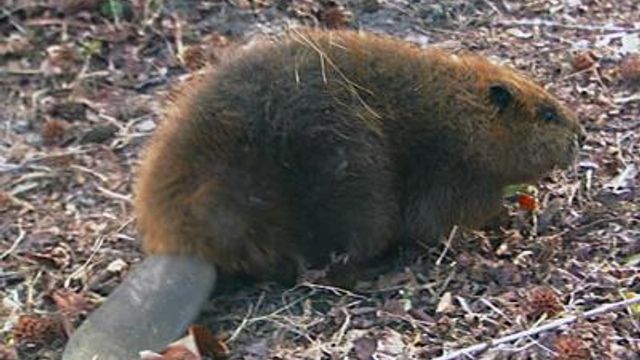Bounty Hunters Busy as Beavers
Sampson County has hired three trappers to bust dams clogging up area streams and to capture the beavers causing the problem.
Posted — UpdatedHundreds of beavers have built scores of dams on creeks and streams throughout the county, causing flooding and drainage problems for nearby residents.
"About every small creek in Sampson County is dammed up somewhere," said Ronnie Thompson, one of three professional trappers whom county officials have hired to eradicate the beaver problem.
The county had a bounty program for several years, paying anyone $12 for a beaver tail. Last year, the county ended the program and budgeted $14,000 to hire professionals.
Assistant County Manager Susan Holder said officials couldn't prove that the pelts being turned in by the public were actually coming from local beavers.
"The beaver problem seems to grow despite our best efforts," Holder said. "The professional trappers go deep into the heart of the problem, and they're able to, hopefully, break up dams and solve the root of the problem."
From December through February, Thompson and the other two trappers netted 558 beavers.
“It’s certainly working,” said Kent Wooten, Sampson County's director of the state Cooperative Extension Service.
During the three-month trapping season, property owners can call the county and have trappers remove beaver dams for free. Outside the season, trappers charge for the service.
Thompson, who has trapped beavers for 40 years, paddles and plods deep into the swamps to get the job done. Beavers can wreak havoc in the county if left unchecked, he said.
"You got to keep the water moving for the drainage. If they keep building beaver dams, they're going to have water running everywhere but in the creek," he said. "The water will be so high, it runs across the road. We got farms where the water is running all through the people's fields."
One pair of beavers breeds two to seven babies year, he said.
"If they're not caught, next year that crowd will raise some more," he said.
The carcasses of the trapped beavers are sent to Barbour Fur Co. in Smithfield, where they’re used to make dog food and fur products. “No part is wasted,” Thompson said.
• Credits
Copyright 2024 by Capitol Broadcasting Company. All rights reserved. This material may not be published, broadcast, rewritten or redistributed.





